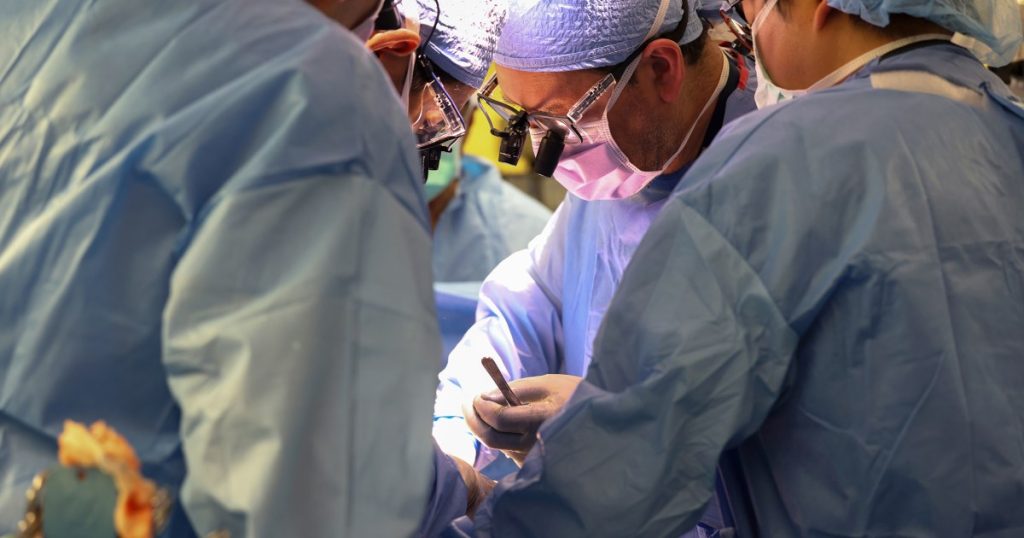Richard “Rick” Slayman, the first recipient of a genetically modified pig kidney transplant, passed away nearly two months after undergoing the procedure at Massachusetts General Hospital. Surgeons had hoped that the pig kidney would last for at least two years. The hospital expressed deep sadness at Slayman’s death and offered condolences to his family, stating that they did not believe his passing was a result of the transplant. Slayman, a 62-year-old from Weymouth, Massachusetts, had previously received a kidney transplant in 2018 but had to return to dialysis when his kidney began to fail. When complications arose with dialysis, his doctors suggested a pig kidney transplant.
Prior to Slayman’s procedure, pig kidneys had only been temporarily transplanted into brain-dead donors. Two men had received heart transplants from pigs, but both passed away within months. Slayman’s family expressed gratitude to his doctors for their efforts in leading the xenotransplant, stating that it allowed them seven more weeks with Rick. They emphasized that Slayman wanted to provide hope for the thousands of people in need of transplants to survive, and that his legacy of hope and optimism will endure forever. Xenotransplantation involves using cells, tissues, or organs from animals to heal human patients, a practice that had previously failed due to rejection by the human immune system. Recent advancements in genetically modifying pigs to create more human-like organs have shown promise in overcoming these obstacles.
Slayman’s death has brought attention to the advancements in xenotransplantation and the potential of genetically modified organs from animals to save human lives. While this technology is still in the experimental stage, it offers hope for those in need of transplants who may not be able to receive a human organ. The loss of Slayman, the first living person to undergo a pig kidney transplant, highlights both the risks and possibilities of this emerging field in medicine. As researchers continue to refine the process and address the challenges of immune rejection and long-term viability, the potential for xenotransplantation to revolutionize organ transplantation remains a topic of interest and debate in the medical community.
The story of Rick Slayman’s journey with xenotransplantation serves as a reminder of the resilience and determination of those facing life-threatening medical conditions. His decision to undergo a pioneering procedure in the hopes of extending his life and providing hope for others reflects the courage and selflessness of individuals navigating complex medical challenges. While the outcome was not what was hoped for, Slayman’s legacy as a trailblazer in the field of xenotransplantation will inspire further research and advancements in the quest to find solutions for those in need of life-saving transplants. The collaboration between medical professionals, researchers, and patients like Slayman highlights the importance of innovation and perseverance in expanding the boundaries of modern medicine.
As the medical community continues to explore the potential of xenotransplantation, the ethical considerations and societal implications surrounding the use of genetically modified animal organs in humans remain a point of discussion. The prospect of utilizing pigs as organ donors raises questions about animal welfare, genetic engineering, and the boundaries of medical intervention. While the promise of xenotransplantation offers new possibilities for addressing organ shortage and improving patient outcomes, it also raises complex ethical dilemmas that must be carefully considered and navigated. The case of Rick Slayman and his groundbreaking procedure with a pig kidney exemplifies the intersection of science, ethics, and humanity in the pursuit of innovative medical treatments for patients in need.


